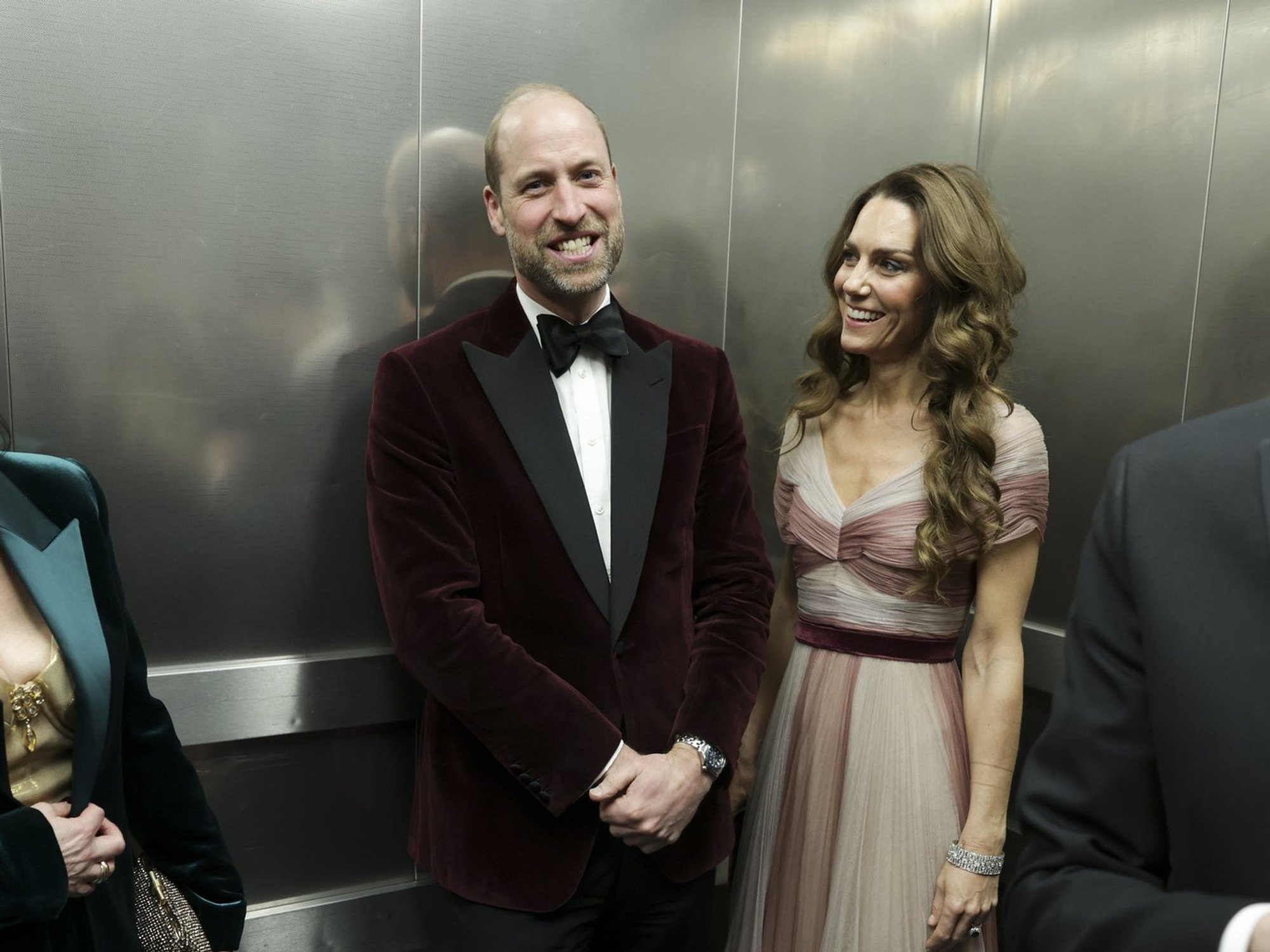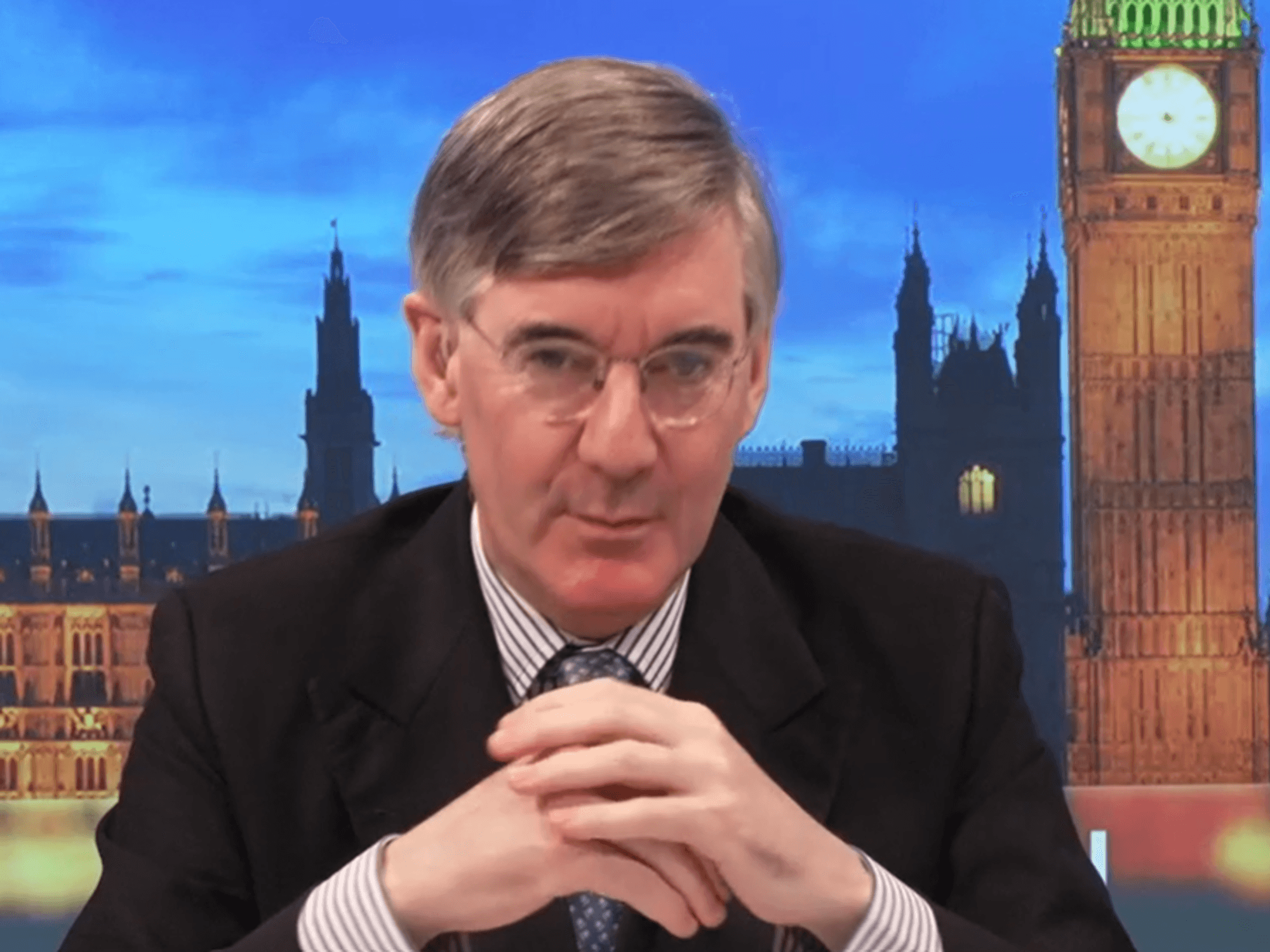Lifting the two-child benefit cap is potty in a country where millions can’t even have one - Colin Brazier

Nigel Farage takes the fight to Labour as Reform UK leader set to commit to scrapping two-child benefit cap and fully reinstate winter fuel payment |
OPINION: Does Reform really want to be associated with the sort of headlines we saw before the two-child benefit cap was introduced in 2017?
Don't Miss
Most Read
Trending on GB News
A senior adviser to the Nigel Farage team texted me this week. He wanted to know what I, as someone who once wrote a book lamenting Britain’s falling birth-rate, thought of the family policies just announced by the Reform leader?
It was, I volunteered, a big moment. Five months ago, I wrote a piece for GB News in which I laid out how Reform might pitch itself as an unapologetically pro-natal party.
From Italy to Hungary, populists on the Right increasingly recognise that cutting immigration is a kind of unbalanced equation. It only works, long term, if a nation ‘grows its own’ - to fill the jobs that would otherwise have gone to migrants.
Now here was Farage explicitly endorsing a pro-natal message, telling a press conference that his party wanted to go "much further to encourage people to have children, to make it easier for them to have children”.
This was a break with the past, with what generations of British policy-makers have baulked at. Reform was making it crystal clear that the State will no longer be neutral on the question of whether or not someone who wants kids should get help to do so.
There will always be those, on Left and Right, who think this is a wholly private matter. But the penny has dropped for Reform. Britain faces a sustainability crisis. Not one founded on environmental factors, but on fertility. Our birth rate - at 1.44 children per woman and falling fast - is unsustainably low. A generation from now, and the ratio of workers to pensioners will be totally out of kilter, with profoundly negative effects for public services, enterprise, and the defence of the realm.
To stave off economic collapse, we would need to accept waves of migration, which would make anything we’ve seen so far look ‘entry-level’.
But other than warm words, what is Farage offering? The restoration of a married couple’s tax allowance is welcome, but - at the amount being talked about - still small beer.
 Lifting the two-child benefit cap is potty in a country where millions can’t even have one - Colin Brazier |
Lifting the two-child benefit cap is potty in a country where millions can’t even have one - Colin Brazier | Getty Images
His big, eye-catching announcement was about lifting the two-child benefit cap.
It’s a terrible mistake.
Does Reform really want to be associated with the sort of headlines we saw before the two-child benefit cap was introduced in 2017? Do you remember them? Front pages featuring families, often recently arrived in the UK, put up in large, sometimes relatively luxurious accommodation, commensurate with their large number of children, and in receipt of huge, taxpayer-funded benefits.
As the Tory leader-in-waiting Robert Jenrick pointed out this week, without the cap, the workless parents of ten children would get benefits to the tune of £60,000 a year. To put that in perspective, they would need to earn £93,000 to be left with the same amount of money after tax.
As a father of six, I know how much a big family costs. But I never expected other people to pay for the counter-cultural choice my late wife and I exercised in ‘going large’.
Millions of Britons have opted to have fewer children than they wanted because of financial pressures. Personally, I think that’s a tragedy for the parents concerned and the children who remained unborn. But if the Exchequer were to bankroll some - often unemployed - parents with large benefit cheques, how would those whose work got in the way of children be left feeling? It would smack of a deep unfairness.
This is not to say that the State shouldn’t use its financial clout to encourage parenting. But the help must be targeted. The first call on our resources should go to those who face involuntary childlessness. Those who want to have a child, who are working and responsible, who will make good parents, but who can’t face the mounting cost of childcare, lost career momentum and extortionate property prices (made infinitely worse by record levels of immigration).
Far too many men and women who have the potential to be great parents are entering middle age having never had the child they craved. They deserve assistance. And then there are the first-time parents desperately wanting a sibling for their only child (my book, a decade ago, controversially argued that the one-child family was a regrettable ‘new normal’).
Help for both these family types would not involve lifting the two-child benefit cap. And it could be targeted at the groups who are effectively boycotting parenting. In particular, the graduate class, burdened by student debt, and - for women - with a fertility window made smaller by years in higher education. If Reform really wanted to signal intent, they should announce a tuition-fee amnesty, a write-off of student debt, for everyone who gets married and becomes a parent.
There will be those who, even if they accept that the State needs to do something, will feel that the financial cost is too burdensome. To them I say, look at other countries. Hungary, for instance, spends about four per cent of its GDP on pro-natalism. More than it gives to defence.
In countries like ours, where millions of women do not even have all the children they say they want, the argument about ‘choice’ has changed. No longer is it about choosing not to have a baby, as it was for early feminists, but about actually STARTING a family in the teeth of economic headwinds.
But a note of caution. Money isn’t a silver bullet. Otherwise, how can it be that the part of Britain with the cheapest property - Scotland - also has the lowest birth rate? Because the decision to have children isn’t just about cash - it’s also about culture.
At the moment, Britain has an anti-natal culture. Parents are disdained, children banished from parts of the public square, seen as a noisome nuisance, not a collective expression of faith in the future.
More From GB News










